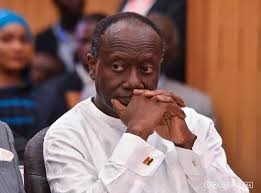The Supreme Court is poised to issue its decision today on the high-profile case concerning the declaration of four parliamentary seats as vacant, a move that has stirred intense political discussion and highlighted questions surrounding the constitutional authority of the Speaker of Parliament.
The case was initiated by Alexander Afenyo-Markin, leader of the New Patriotic Party (NPP) parliamentary caucus, who contends that Speaker Alban Bagbin exceeded his powers by declaring the seats vacant without judicial intervention or the announcement of by-elections.
Central to the case is the interpretation of the 1992 Constitution regarding parliamentary vacancies.
Speaker Bagbin justified his declaration on September 17, 2024, citing constitutional violations by the affected MPs as the basis for their removal.
Afenyo-Markin, however, has argued that Bagbin’s unilateral decision undermines the role of the judiciary, which he believes holds the sole authority to rule on such constitutional matters.
He expressed concern that the Speaker’s actions could disenfranchise voters in those constituencies, effectively leaving them without representation.
In response to Afenyo-Markin’s lawsuit, the Supreme Court imposed an injunction halting any follow-up actions related to the vacated seats until a final judgment could be rendered.
Speaker Bagbin sought to have this injunction lifted, claiming that it hampered his duties and asserting that his decision fell within his mandate to uphold parliamentary standards.
The court, however, rejected Bagbin’s motion, upholding the initial injunction and paving the way for today’s decisive ruling that could have lasting implications for the balance of power between legislative and judicial authorities.
































